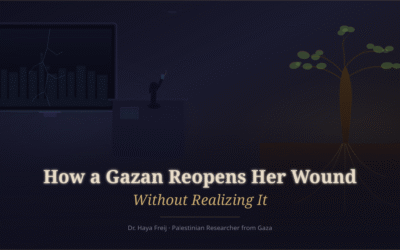From the Exploitative Aggressive Western World to a Global Cooperative Future
By Yasser Qubailat
It does not take much hesitation to conclude that Russia is significantly concerned with the recent events in our region since the 7th of October and the subsequent brutal Israeli war on Gaza. However, observers note that Russian policy avoids engaging in these events at the level befitting its status as a permanent member of the UN Security Council and a partner in the “Quartet on the Middle East.” Russia’s relationships with regional countries and the conflicting parties, as well as the importance of these events to its foreign policy doctrine, could justify a more proactive stance.
Of course, it is not due to Russia being preoccupied with the Ukrainian war, as might be assumed; this same war has not prevented Moscow from involving itself in other conflict zones such as the Armenian-Azerbaijani crisis over Nagorno-Karabakh, the Kazakhstan crisis, and maintaining political and military vigilance regarding developments around Taiwan and North Korea, and military coups in Africa.
The Russian Approach
In reality, Russia has developed approaches and strategies over the past twenty years to deal with international issues, particularly those where the West is a key player. These approaches are built on reclaiming the geopolitical sense of “historic Russia,” the “Soviet experience,” the “Russia of the 1990s,” and the special expertise accumulated by the “new Russia” or “Putin’s Russia,” as the West likes to call it.
This new approach does not prioritize direct confrontation with the West in its spheres of influence, nor even in international organizations. Instead, it seeks mutual cooperation and understanding (which has seemed impossible in recent years). Russia also strives to avoid competing with the West for roles it endeavors to monopolize, not out of concession but to avoid wasting “energy” in battling a party that fights itself and volunteers to antagonize itself. Therefore, it encourages the West to engage more deeply in traditional conflict zones, watching its successive impulses in this field, waiting for a pivotal moment here or there.
One might recall a political proverb attributed to Soviet leader Joseph Stalin, which suggests: “It is unwise to interrupt your enemy when he is making mistakes.”
The United States has succeeded in nullifying international responsibility towards the Palestinian cause, neutralizing and effectively killing the “Quartet on the Middle East” or “Madrid Quartet,” established in Madrid in 2002 by Spanish Prime Minister José María Aznar amidst the rise of resistance to Israeli occupation in Palestine.
The US effort to nullify international responsibility towards the Palestinian cause and neutralize this committee paved the way for the rise and empowerment of the far-right Israeli Prime Minister Benjamin Netanyahu and achieving the strategic goals he adopted. Netanyahu himself declared last year in a victorious tone that he succeeded in shelving the Palestinian cause.
Shockingly, nullifying international responsibility towards the Palestinian cause and neutralizing and killing the “Quartet on the Middle East” is akin to “shelving the Palestinian cause.” It’s the same extremism with the same political blindness! This is what the Americans did with unparalleled zeal, so let them face the dire consequences of their actions.
October 7
Russia did not participate in these events, neither on the Palestinian nor the Israeli side. However, it certainly benefited from them on multiple levels; October 7 proved the validity of Russia’s stance, warning of the dangers of US unilateralism in the “Middle East” and the Palestinian issue, and leading to the region’s return to extreme tensions. Russia repeatedly expressed the impossibility of resolving the conflict without a solution guaranteeing Palestinians a sovereign state on the 1967 borders, with East Jerusalem as its capital.
In this context, Russia opposed the unipolar system, the overreach of US roles, and the US’s excessive influence in international politics and economics. Russia also opposed the US’s abusive use of international institutions and organizations to attack countries against its will, impose its policies on others, and override international law.
The Russian viewpoint always pointed out that the US tries to solve its internal and global crises at the expense of other nations and peoples, which will inevitably lead to the decline of American influence and the collapse of Washington’s global hegemony and internal cohesion factors.
October 7 confirmed this, revealing Washington’s declining ability to manage a costly crisis politically and geostrategically, unsustainable for long, as it exhausts the American power reserve, specifically.
Russian Gains
October 7 and the subsequent brutal Israeli war on Gaza positioned Russia better in the international contest and the Ukrainian war; these events shifted the effort of the “collective West,” or most of it at least, to the Middle East, one of the traditional conflict zones the “collective West,” led by the US, believed it had finished with, rushing towards Russia, China, North Korea, and Iran. With October 7, the Ukrainian front began to dry up.
Moreover, October 7 and the subsequent brutal Israeli war on Gaza are positioned on the Russian strategic thinking map as the second wars of the new international system, following the war in Ukraine. This with an additional advantage; the war in Ukraine and other proposed new international system wars in Taiwan and North Korea are major powers trying to repel American expansion in their vital neighborhoods, while in the case of October 7, it is a counterattack striking a fatal blow to the heart of American influence, guarded by Israeli thuggery.
Additionally, drawing from the historical injustices of the Palestinian people, October 7 gave Russian and Chinese efforts against the “collective West” and their quest for a new international system a moral dimension, resonating with the grievances of free nations and peoples worldwide. This significantly strengthened the global trend towards embracing BRICS and aspiring to liberate from the dangers of capitalist economic relations. People may forget that capitalist economic relations have become as dangerous as mafia-like relations.
Observers surely notice the reaction of South Africa, Brazil, Colombia, Chile, Mexico, and other countries condemned to live in the deadly limbo between the first and third worlds, in a system imposing sharp disparities, rejecting gradation, renouncing personal and private independence, and eradicating the middle class genocide.
Conflict Transformations
Russia, China, North Korea, and Iran were the new fronts for wars planned by the current international (Western) system, which convinced itself it had finished traditional conflict zones, settled their paths, and controlled their interactions. However, it was surprised by the war in Ukraine, which gave the strongest signals of the targeted parties’ capability to conduct preemptive wars.
This coincided with Russian control over the geography of the war and the ability to prevent its military expansion to other regions while keeping it within Europe and “collective Western” countries using economic tools exclusively. Not to mention neutralizing the economic impact and preventing it from affecting Moscow-friendly countries and avoiding third-world countries’ impact. This resulted in the African military and political coups, leaning towards Moscow and Beijing, deviating from the “collective West.”
In this context, October 7 emerged to remind of the traditional conflict zones and end the Western and American illusions of their historical disappearance and eclipse.
War Form
The war in Ukraine distinguished itself as not a war of military victories but a war of attrition for the “collective West,” led by the US, on all levels—economic, social, political, and moral. Most importantly, it revealed the limits of American power and hegemony.
Here, it’s worth noting that the Gaza war follows this pattern. It is a war of attrition for Israeli power, and behind it, the influence of the “collective West,” exposing the limits of its power and hegemony.
In reality, the situation wouldn’t differ much if attention shifted to China and North Korea, where tension in these regions follows this attritional nature, exhausting American power and politics. It can be said this would be the case if Western friction with Iran evolved into war.
Thus, it can be simply said that this is the nature of wars in the new international system. They are attritional wars, operating under the equation: “Do not interrupt him, let him make more mistakes.”
The Gaza war, more strongly than the Ukraine war, showed that the “collective West’s” reaction to any step, from any direction, towards a new international system would be aggressive, disregarding anything but preventing the fall of its hegemony, represented by the current (Western) international system. It is ready for a third world war to achieve this, even if it means the end of life on earth.
In such a reality, only this type of war remains, which exhausts the hegemonic power in all its human, material, and moral components, shatters its body, and forces it to bow and kneel to the inevitable movement of history, ending five hundred years of “collective Western” dominance.
Here, the Chinese, Russian, Arab, African, South American, and oppressed peoples of the world, even in the “collective Western” countries themselves, meet, the first to invest in the political idea of “dream” and “human rights.”
Thus, talking about Gaza and Russia concerns ninety percent of the hopes of oppressed humanity, who admired the “Al-Aqsa Flood” and condemned it alike!
Yasser Qubailat is a Jordanian writer and journalist expert in Russian affairs. He authored the book “The Puzzles of Putin: A Life Story and Professional Biography.” He has several literary works, including “Family Dispute,” “The Neighborhood Pub,” and “Your Book in My Right Hand.”
Hassan Al Maqbali
Content Creator & Website Manager at Omanspire
Hassan Al Maqbali is a dedicated content creator and the website manager at Omanspire, where he writes passionately about Oman's culture, history, and the timeless stories that shape the nation’s identity. His work reflects a deep love for the Sultanate and a commitment to sharing its beauty with the world.
Driven by a desire to widen global understanding of Oman, Hassan creates narratives that present the country through diverse perspectives—capturing its people, heritage, landscapes, and evolving cultural heartbeat. Through Omanspire, he hopes to bring readers closer to the spirit of Oman, one story at a time.




